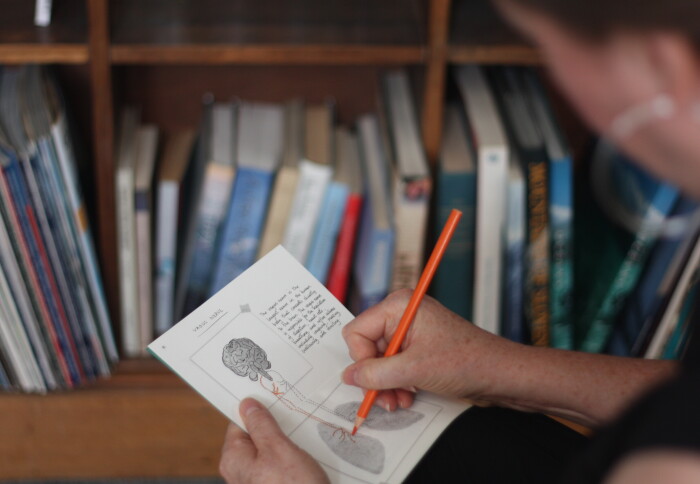It’s time to talk about chronic cough

Researchers and clinicians who work on chronic cough have come together with those affected by it to raise awareness through 'Let’s Talk About Cough'.
Did you know that one in 10 people in the UK suffer from chronic (long-term) cough, with women more commonly affected than men? The condition can last for decades and be very challenging. Most people experience varying degrees of physical, emotional and social discomfort. In the worst cases, it can cause potentially dangerous blackouts, stress incontinence and broken ribs.
"I have had my cough for 30 years and I really hate it. Although my friends and family are very supportive and accept my ever-present cough as part of me, I think of it as an alien who has invaded my body" Joan Participant
It can be difficult to diagnose because there is no definitive test for it and doctors don’t always recognise it as a condition in its own right. It can be caused by abnormally high levels of a chemical called ATP (which we all have in our bodies) in our lungs. Drugs are currently being developed to normalise the activity of ATP in those affected.
Now, a group of researchers and clinicians from Imperial College London and the University of Manchester who research and treat the condition – some of whom are also involved in the development of drug treatments – have come together with those affected by it to raise awareness and understanding in a project called ‘Let’s Talk About Cough’.
The project has produced ‘One in Ten’, which is available on the Let’s Talk About Cough website. It is an audio experience in which the listener is guided to think about chronic cough and to hear from people affected – including being ostracised in the office, shunned on public transport, and experiencing panic attacks. One in Ten also explores the biology behind cough and the story of the research to understand it.
Speaking about chronic cough, Professor Maria Belvisi from the National Heart and Lung Institute, Imperial, and Senior Vice President and Head of Research and Early Development, Respiratory and Immunology, BioPharmaceuticals R&D, AstraZeneca, said "Imagine coughing so much that you choke or break a rib. This is the awful reality for millions of people living with chronic cough. More research is desperately needed into chronic cough, and I am so proud to be part of a team at Imperial that is looking to combat this debilitating illness".
'One in Ten' is an eye-opening experience that layers moving personal stories with a journey into the mysteries of the human body. The listener is gently guided through an imaginative, powerful and evocative soundscape and invited to walk in the shoes of people deeply affected by a complex and misunderstood condition. Audiences have described it as, ‘thought-provoking’, ‘enlightening’, ‘moving’ and ‘fascinating’.
'One in Ten' will be presented at SICK Festival in Manchester at various times on Saturday 25 May. Places are free and bookable here. It will also be presented at Manchester Festival of Libraries at various times on Wednesday 12 and Thursday 13 June. These events are also free, with booking available here.
The lead researcher, Professor Jacky Smith from the University of Manchester, says "Chronic cough is a cough that doesn't go away after eight weeks and can persist for decades. It can severely affect a person's health, quality of life and mental wellbeing, so I am delighted that the first-ever drug treatment for the condition has been licensed for use in the UK (although it is not yet available on the NHS) and that a second is in development".
The project’s aims are twofold:
- to raise awareness about chronic cough as a condition in its own right among the public and healthcare professionals
- to encourage people to be kinder to those with a chronic cough. Post-Covid, there is often a fear that chronic cough is contagious. It’s not but it is very hard to live with, so a little compassion and consideration can go a long way.
Dr Eric Dubuis, a physiologist at NHLI, Imperial, adds "I look at how certain triggers – for example, breathing in fog – produce a hypersensitive (very strong) reaction in people with chronic cough. Their body produces a high level of a high-energy molecule called ATP and I am researching a drug that can turn down the volume on ATP without switching it off altogether. We want to stop the cough without blocking the sensors that protect us from other things.'
The project is funded by Wellcome and led by Manchester and Imperial, in collaboration with Vocal.
Article written by Dara O'Hare, for 'Let's Talk About Cough'
Article supporters
Article text (excluding photos or graphics) © Imperial College London.
Photos and graphics subject to third party copyright used with permission or © Imperial College London.
Reporter
Ms Helen Johnson
Communications Division